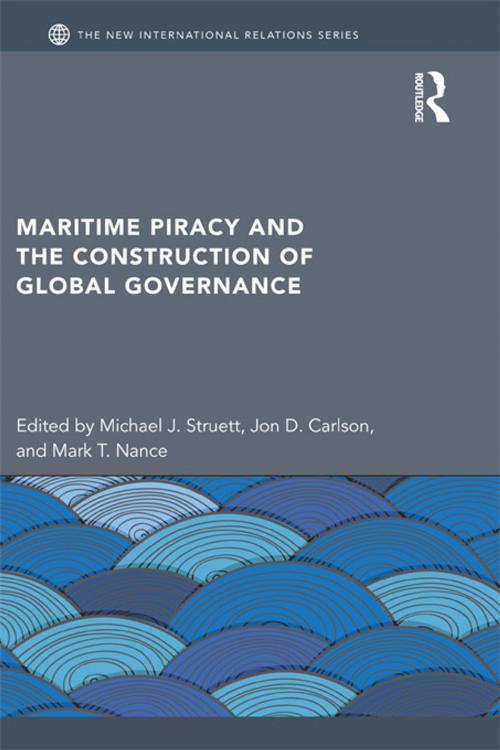Maritime Piracy and the Construction of Global Governance
Nonfiction, Social & Cultural Studies, Political Science, International, Treaties, International Relations| Author: | ISBN: | 9781136278891 | |
| Publisher: | Taylor and Francis | Publication: | May 7, 2013 |
| Imprint: | Routledge | Language: | English |
| Author: | |
| ISBN: | 9781136278891 |
| Publisher: | Taylor and Francis |
| Publication: | May 7, 2013 |
| Imprint: | Routledge |
| Language: | English |
Piratical attacks have become more frequent, violent, costly and increasingly threaten to undermine order in the international system. Much attention has focused on Somalia, but piracy is a problem worldwide. Recent coordination efforts among states in South East Asia appear to have helped in the area, but elsewhere piracy has expanded. Interestingly, international law has long recognized piracy as a crime and provided tools for universal suppression, yet piracy persists.
In this book, a handpicked group of leading experts in the field of International Relations use maritime piracy as a means to expose the incongruities in our understanding of global governance. Using broadly constructivist approaches to understand international actors’ responses to the challenges created by maritime piracy, the contributors question a number of myths and misconceptions around piracy and analyze the various ways that international law and organizations channel actors’ understandings of maritime piracy and their efforts to respond to it. In doing so, they expose some shaky foundations for IR theorists: how do we conceive of governance and legitimacy when they are delinked from the territorial aspect of the modern nation-state? What happens to prospects for cooperation when we get to the nitty-gritty questions of practice related to paying for trials, imprisoning and maintaining captured pirates, bearing the burden of policing sea-lanes, or even determining what constitutes a pirate? Does anyone have a monopoly on the legitimate use of force at sea, and how is that legitimacy constructed?
Maritime Piracy and the Construction of Global Governance offers an improved theoretical understanding of the response of the international community to maritime piracy and broadens our understanding of the complex and sometimes countervailing motivations of all the actors involved, from international organizations and states down to the pirates themselves.
Piratical attacks have become more frequent, violent, costly and increasingly threaten to undermine order in the international system. Much attention has focused on Somalia, but piracy is a problem worldwide. Recent coordination efforts among states in South East Asia appear to have helped in the area, but elsewhere piracy has expanded. Interestingly, international law has long recognized piracy as a crime and provided tools for universal suppression, yet piracy persists.
In this book, a handpicked group of leading experts in the field of International Relations use maritime piracy as a means to expose the incongruities in our understanding of global governance. Using broadly constructivist approaches to understand international actors’ responses to the challenges created by maritime piracy, the contributors question a number of myths and misconceptions around piracy and analyze the various ways that international law and organizations channel actors’ understandings of maritime piracy and their efforts to respond to it. In doing so, they expose some shaky foundations for IR theorists: how do we conceive of governance and legitimacy when they are delinked from the territorial aspect of the modern nation-state? What happens to prospects for cooperation when we get to the nitty-gritty questions of practice related to paying for trials, imprisoning and maintaining captured pirates, bearing the burden of policing sea-lanes, or even determining what constitutes a pirate? Does anyone have a monopoly on the legitimate use of force at sea, and how is that legitimacy constructed?
Maritime Piracy and the Construction of Global Governance offers an improved theoretical understanding of the response of the international community to maritime piracy and broadens our understanding of the complex and sometimes countervailing motivations of all the actors involved, from international organizations and states down to the pirates themselves.















